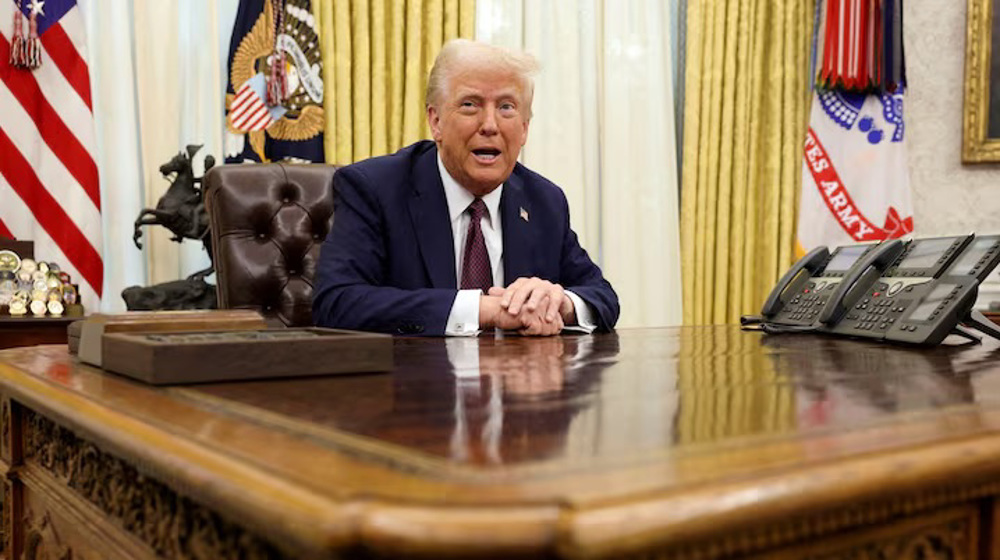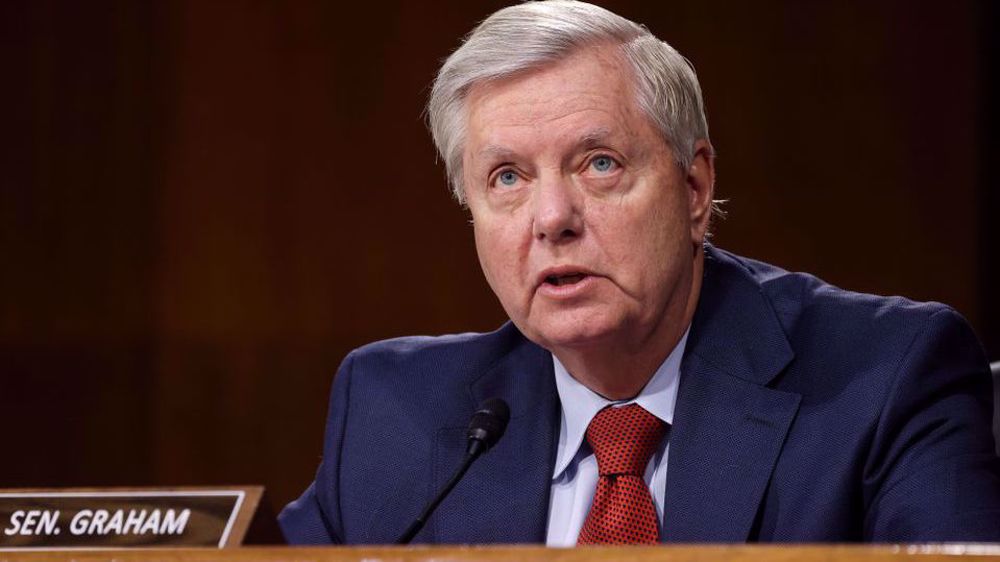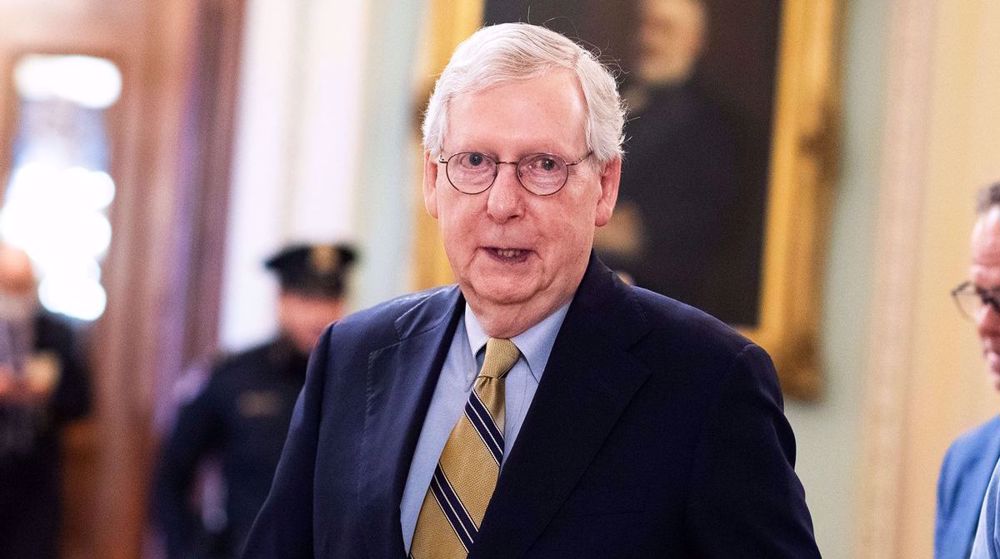Senator Graham urges Republican colleagues to let US default on debt
US Senator Lindsey Graham has urged Republican colleagues not to help Democrats raise the debt ceiling, and let the United States default on trillions of dollars of debt.
In blunt remarks to the Senate Republican Conference on Wednesday, Graham warned Republicans of voting for Senate Minority Leader Mitch McConnell’s (R-Ky.) deal with Democrats to set up a special pathway to raise the debt limit.
Graham said former Republican President Donald Trump will come down hard on any GOP senators who vote for McConnell’s deal and blasted McConnell for putting Senate Republicans in a position to get “shot in the back” over the deal.
Graham reportedly specifically warned Republican colleagues “the president is going to be engaged on this issue.”
He told colleagues that McConnell had “led them on a charge up a hill and they were getting shot in the back,” according to a GOP senator.
He accused McConnell of backing away from his vow earlier this year of not giving Democrats any help in raising the debt limit.
The United States narrowly avoided default in October after congressional Republicans refused to vote to increase the nation’s debt borrowing limit, forcing Democrats to pass a short-term extension, setting up another showdown for late December.
A number of Republicans led by McConnell earlier helped advance a short-term debt ceiling extension, after a weeks-long standoff between Republicans and Democrats over raising America’s $28.4 trillion debt ceiling.
McConnell had offered to let Democrats pass the short-term extension that was expected to last into late December.
However, later on, McConnell warned President Joe Biden that Republicans won't help raise the debt ceiling later this year, and let the United States default on trillions of dollars of debt.
McConnell wrote in a letter to Biden that a speech by Majority Leader Charles Schumer (D-N.Y) had "poisoned the well."
Now, Congress has only days to avert another government shutdown over the federal debt ceiling and Senate leaders do not appear to be anywhere close to a deal.
There is no indication that lawmakers can unite behind an omnibus spending bill before that deadline, especially since Republicans have already signaled their opposition to another increase to the debt ceiling, despite the potentially severe consequences of a US default.
In a recent letter to Congress, Treasury Secretary Janet Yellen warned that the Treasury would be left with insufficient remaining resources to finance the government beyond December 15.
The debt ceiling puts a cap on how much the federal government can borrow to pay its bills. Since the end of World War II, Congress has passed nearly 100 modifications to the debt limit to keep financing the government. But lawmakers from both parties have in recent years turned the process into a partisan political cudgel.

Trump rescinds arms sales regulation in favor of Israel, sources say

Trump fires top US general in unprecedented purge of military leadership

AP sues three US officials over barred access to presidential events
Israel’s massacres won’t grant it ‘legitimacy’: Hamas on 31st anniversary of Ibrahimi Mosque tragedy
French leader decries ‘unprecedented diplomatic scandal’ after Israel bars European MPs
VIDEO | Washington’s failed projects
VIDEO | Islamabad exhibition exposes Israeli atrocities in Gaza
Trump rescinds arms sales regulation in favor of Israel, sources say
Iran’s president vows to accelerate cooperation with Russia
Palestinian says Israeli jailers poured acid on him during interrogation
Iran, Turkmenistan seek increased cargo transit via railways








 This makes it easy to access the Press TV website
This makes it easy to access the Press TV website